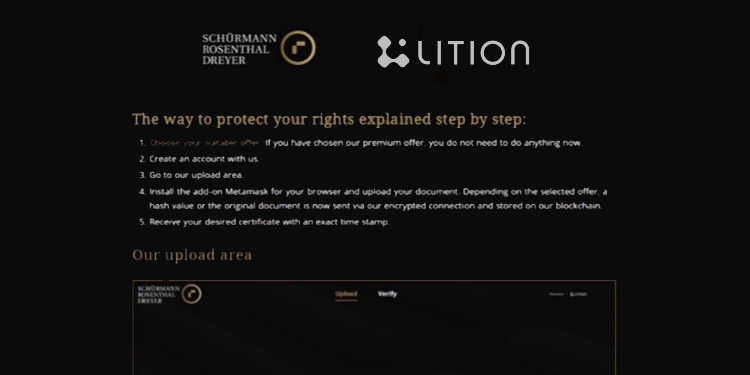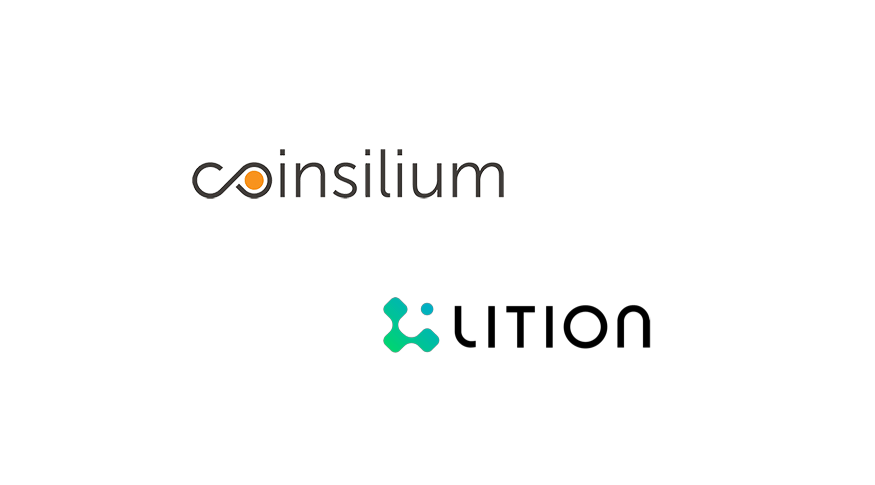Lition, a layer 2 blockchain infrastructure on top of Ethereum for commercial usage of dApps, announced today a collaboration with top German law firm Schürmann Rosenthal Dreyer (SRD). Both parties have been working together in order to deploy Lition’s Proof of Existence use case for SRD’s clients.
Customers will now be able to have their most important information reliably protected in a confidential and tamper-proof manner by one of the leading legal firms in Germany, using Lition’s blockchain technology. Furthermore, SRD is committed to exploring blockchain technology in additional commercial scenarios together with Lition’s expertise.
“Blockchain technology is unknown to many. It stands between high expectations on the one hand and great skepticism on the other. We want to make blockchain’s undeniable benefits of security, trust and lower costs available to our customers.”
– Schürmann Rosenthal Dreyer
Proof of Existence powered by Lition
Business ideas, trade secrets, and standard operating procedures are a key asset for every company. Customers can use Schürmann Rosenthal Dreyer to protect themselves from the risks of industrial espionage or data leaks and to legally document that they are rightfully business secrets of a company. Legal certificates are provided so customers can prove they were in possession of the trade secret at a certain point in time.
By leveraging blockchain technology and only keeping the hash value in the contract, customers can effectively use the trade secret in contractual relationships with business partners, employees, and other parties, preventing any attempt to manipulate data and change the content of contracts and documents. That leads to a competitive advantage as there isn’t anymore the need for an expensive notary as supervisor among the actors involved.
How It Works
After connecting to the dedicated website through the browser plug-in Metamask, participants can upload certificates. The documents are cryptographically hashed and validated by thousands of decentralized servers spread across the internet. This is exactly where blockchain technology adds value to the system and cuts out useless third-party trustees.
From a technical standpoint, the software creates a unique identifier of the certificate, called a hash. A hash is impossible to replicate and it is proven that the process cannot be reverse-engineered. This eliminates any opportunity to compromise data starting from the hash, which makes it secure from a privacy perspective.
This puts the certificate holder in a position where they can mathematically prove they are the owner of the document to whoever requests so. Clients do not need to spend time in order to contact the certificate-issuing company, SRD, to verify the validity of documentation. Instead, it is enough to connect to use the solution in order to prove the existence of the document.
Most importantly, private data rights will always be fulfilled to the highest possible GDPR standards. As Schürmann Rosenthal Dreyer is nationally recognized for their work in data protection law.





















